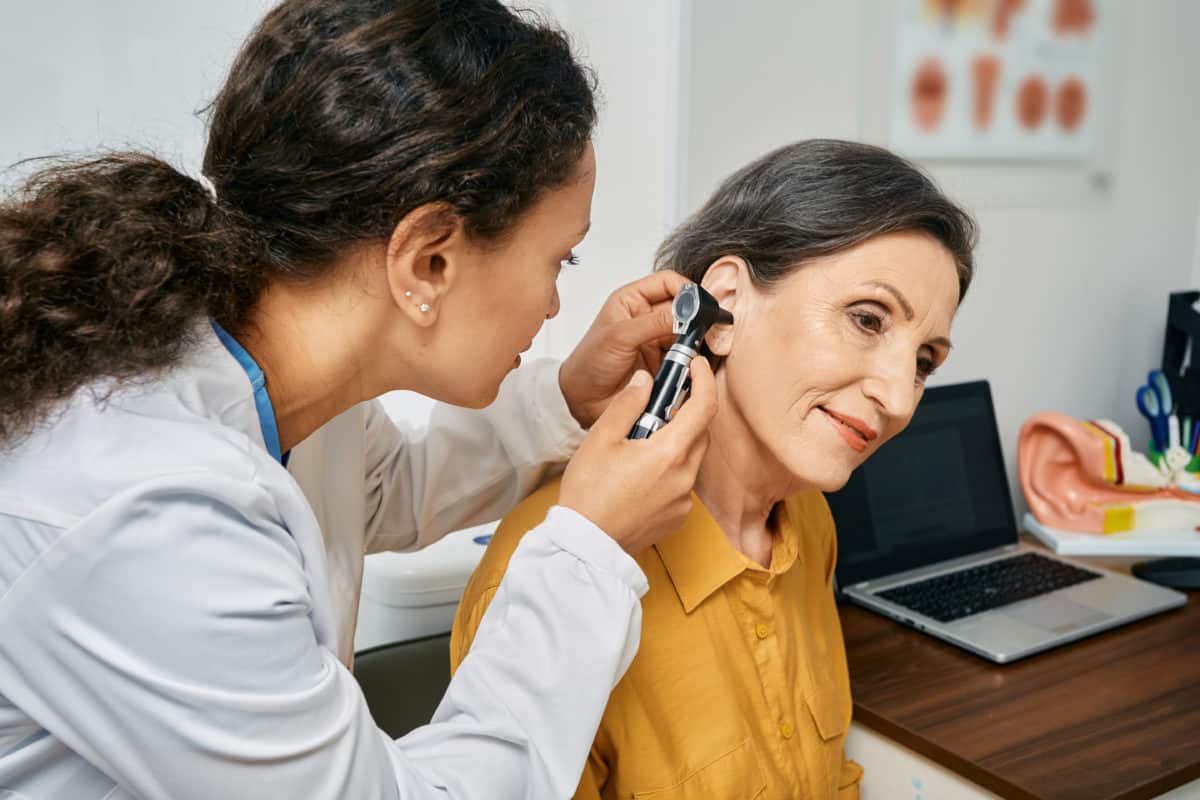- The Future of Hearing Health Research: Promising Breakthroughs - April 18, 2024
- Hearing Health in the Classroom: Strategies for Teachers and Students - April 6, 2024
- The Power of Bluetooth: A New Chapter in Hearing Aids - March 26, 2024
Hearing loss affects nearly half of Americans over the age of 75. One of the most difficult parts about aging is losing independence and that is doubly so when hearing loss is added.
If you are responsible for the care of an older adult, odds are you’ve noticed how hearing loss plays a part in the ways you communicate and understand each other.
Hearing loss is number three on the list of chronic health conditions facing older adults in the United States. Yet barely a third of those people are receiving appropriate or adequate treatment for their hearing loss.
Some older adults have become adept at compensating for hearing loss by reading lips or just pretending to hear. Unfortunately, this aids in the progression of hearing loss and adds strain to other aspects of an individuals’ daily life.
Untreated hearing loss can become severe and greatly reduce independence.
Aging and hearing loss in older adults
Presbycusis is the progressive hearing loss that occurs in both ears over time. Hearing capacity begins to diminish as we age and is not easily recognizable at its onset. This kind of age-related loss can be brought on by a number of causes such as:
- Past occupational or recreational exposure to loud noises which can lead to tinnitus (ringing in the ear) and ear damage.
- Current medical conditions that impair blood flow, blood vessels, or cognitive capacity like cardiovascular disease, asthma, diabetes, or dementia.
- Changes in the ear that occur naturally as we age; shrinkage, blood flow irregularities, changes in nerve pathways, damage to bones or abnormal bone growth etc.
Tips for communicating
- Speak clearly but don’t yell. Yelling only muffles sounds for those with hearing loss. If you slow down and make sure to enunciate it can help avoid miscommunication.
- Before you begin talking make sure that you’ve got their attention. Adults with hearing loss also rely on face expressions and body movement for conversational cues. So make sure they know you’re talking to them.
- Face who you are talking with so they can see you. In addition to listening to your facial expressions, many people with hearing loss have had to become adept at lip reading so make sure they can see you.
- Instead of repeating yourself rephrase the question. You may be asked to repeat yourself multiple times. If so try rephrasing the question or statement and don’t abandon the effort.
- Make sure you are in a well lit area. This will ensure that they have every opportunity to not just hear what you have to say but see as well.
- Be sure to reiterate the important details. Sometimes people with hearing loss feel it’s easier just to nod and go along with the flow. So if there is a really important point make sure to say it a few times in a few ways.
- Try to minimize as much background noise as possible. Hearing is difficult when there are a lot of competing sounds. Consider moving to a quiet place before having a conversation.
Healthcare environments are not designed to serve those with hearing loss
Hospital environments tend to be noisy and active places. Miscommunication and misunderstandings are more likely to occur. Which threatens the level of quality and effective health care available to older adults with hearing loss.
Medical professionals don’t always take into consideration how difficult it can be to hear, process, and understand important medical information and make clear educated health care decisions with the distraction of external noises.
It has even been reported that medical professionals tend to make less trips and spend less time with patients that have hearing difficulties. Sometimes patients with hearing loss are readmitted after they’ve misunderstood care and pain management guidance.
Such break downs in communication are ineffective and can be dangerous.
Hearing aids for older adults can be beneficial
Having difficulties hearing leaves patients at a disadvantage. Unable to advocate for themselves, their needs sometimes go neglected. Which could ultimately lead to the worsening of other medical conditions.
By providing treatment for hearing loss it restores agency and power to older adults and improves their overall quality of life. With the use of hearing aids older adults can hear clearly and participate in conversations about their care.
Improved hearing also encourages more social interaction and engagement which has a positive influence on a patients mental and physical health.
When considering long term care for older adults it is important to consider an aid or facility that has experience with compassionately caring for someone with hearing loss.
If you have any more questions about hearing loss in older adults call us now!

